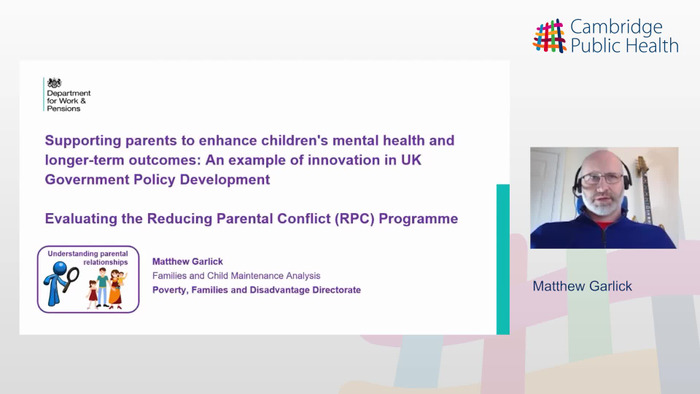Abstract
This presentation, from Matthew Garlick from the Department for Work and Pensions, provides a brief overview of the evaluation design for the Reducing Parental Conflict Programme, launched in 2018 and due to finish in 2022. The presentation focuses on the challenges of estimating the impacts of eight new interventions for parents, aiming to reduce inter-parental conflict and improve short and long term outcomes for the children in those families. The coronavirus pandemic and its impacts on parents and children exposed the frailties of the department’s before-and-after impact evaluation design; it is feared that changes in relationship distress amongst workless and low income families during the pandemic may obscure any reductions in conflict detected. The Department is therefore looking to a number of household, family and parent/pupil surveys, conducted before, during and after the pandemic, to understand its effects on the types of families who have participated in parental conflict interventions.
Video

Supplementary materials
Title
Slides
Description
Slides for talk
Actions



